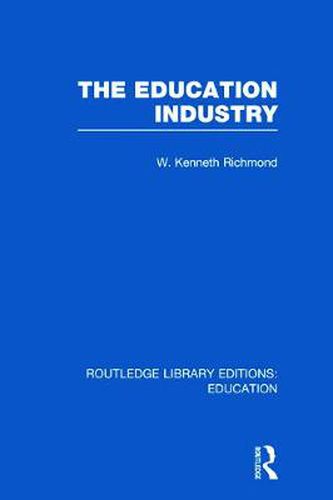Readings Newsletter
Become a Readings Member to make your shopping experience even easier.
Sign in or sign up for free!
You’re not far away from qualifying for FREE standard shipping within Australia
You’ve qualified for FREE standard shipping within Australia
The cart is loading…






In one sense, education was always a service industry. This book examines the quality as well as the quantity of contemporary education as it answers the following questions: Are we getting value for money? What makes a good teacher? What sort of education do we want? In the UK in the twentieth century education grew while national income did not. Britain devoted more of its resources to education than any other European nation and yet the UK had the largest proportion of children leaving school at 15 and spent more on each university place than the USA. The author argues that far too little attention was paid to cost-effectiveness analysis and planning. He examines Swedish and American examples and concludes that we must seek and employ the common features of modern management – network analysis, operational research and organizational theory. He also argues that traditional education has to come to terms with the mounting pressures of new curricula and new media.
$9.00 standard shipping within Australia
FREE standard shipping within Australia for orders over $100.00
Express & International shipping calculated at checkout
In one sense, education was always a service industry. This book examines the quality as well as the quantity of contemporary education as it answers the following questions: Are we getting value for money? What makes a good teacher? What sort of education do we want? In the UK in the twentieth century education grew while national income did not. Britain devoted more of its resources to education than any other European nation and yet the UK had the largest proportion of children leaving school at 15 and spent more on each university place than the USA. The author argues that far too little attention was paid to cost-effectiveness analysis and planning. He examines Swedish and American examples and concludes that we must seek and employ the common features of modern management – network analysis, operational research and organizational theory. He also argues that traditional education has to come to terms with the mounting pressures of new curricula and new media.